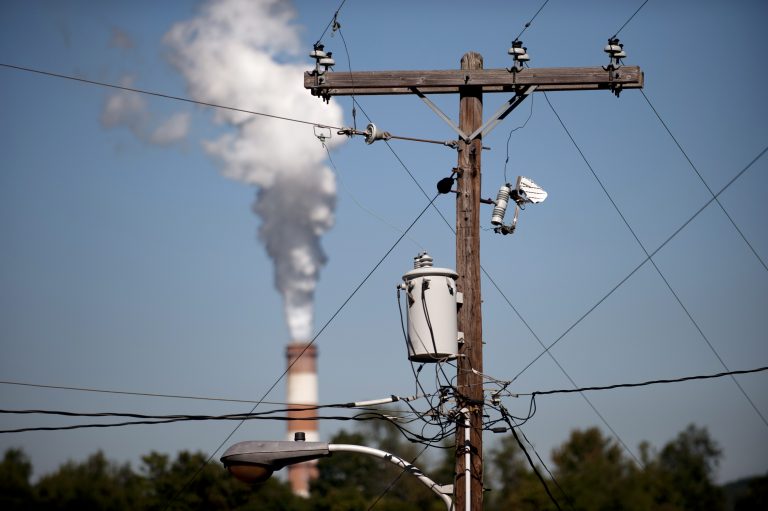Authorities are warning that extreme temperatures and widespread drought could cause America’s power grid to fail across large swaths of the country this summer.
In a statement, published on May 18, the North American Electric Reliability Corporation (NERC) warned that “several parts of North America are at elevated or high risk of energy shortfalls this summer due to predicted above-normal temperatures and drought conditions over the western half of the United States and Canada.”
On May 19, NOAA’s Climate Prediction Center forecast that nearly the entire contiguous United States is expected to experience above average temperatures throughout the summer months this year.
Experts are warning that the power grid is extremely delicate and demand for electricity may outpace availability resulting in forced power outages, known as rolling blackouts, for millions of Americans. Forced rolling blackouts are used to prevent damage to electricity infrastructure when demand exceeds supply.
Compounding the problem is a key 500 kV transmission line that was damaged by a tornado in December 2021 that has yet to be repaired and brought back online.
Success
You are now signed up for our newsletter
Success
Check your email to complete sign up
“Midcontinent ISO (MISO) is in the ‘high risk’ category, facing capacity shortfalls in its north and central areas during both normal and extreme conditions due to generator retirements and increased demand,” NERC said in the statement.
MISO, or Midcontinent Independent System Operator, operates 65,800 miles of transmission lines and includes 51 transmission owners and serves the Midwest, the southern United States and the entire Canadian province of Manitoba.
In addition, areas at “elevated risk” for energy emergencies during extreme conditions include the Canadian province of Saskatchewan and the Western Interconnection, Texas, Southwest power Pool (SPP).
Drought conditions present ‘varied threats’
NERC is warning that “extended drought conditions present varied threats to capacity and energy across the country.”
Widespread drought and below-normal snowpack has the potential to lead to lower than average power generation from hydro generators, threatening the availability of electricity.
NERC is warning that in Texas, “wide-area heat events coupled with drought can lead to higher than expected peak electricity demand and tighter reserve conditions.”
Due to drought, thermal generators on the Missouri River Basin may be affected. Low water levels are expected to reduce output capacity.
Mark Olsen, NERC’s manager of Reliability Assessments said in a statement, “Grid operators in affected areas will need all available tools to keep the system in balance this summer. Over the longer term, system planners and resource adequacy stakeholders need to keep potentially abnormal weather conditions like these in mind so that we continue to have a reliable and resilient bulk power system.”
Olsen raised several other concerns saying that “supply chain issues and commissioning challenges on new resource and transmission projects are a concern in areas where completion is needed for reliability during summer peak periods.”
In addition to extreme weather and drought Olsen is warning that the electricity grid is still susceptible to cyber security threats from Russia and other bad actors.
He said some coal-fired generator owners are struggling to obtain fuel amidst continuing supply chain disruptions as the result of COVID-19 measures and solar photovoltaic resources continue to present reliability concerns when there are grid disturbances.
The start of the wildfire season in the Western United States and Canada is expected to put further stress on the reliability of the bulk power system.
How to prepare for a power outage
Americans are encouraged to do everything reasonable to prepare for coming power outages including having extra batteries available and a car charger to charge mobile devices in order to communicate and to stay up-to-date on news reports.
Keeping a physical list of emergency and family contacts is recommended in case one’s phone battery dies.
Knowing the location of flashlights and a radio is important in case of power loss and extra batteries or a portable solar charger are recommended to keep them operational.
To conserve power on mobile devices ensure the brightness settings on the device are set to low and place your device in airplane mode. Disable all non-essential applications that could draw power.
Subscribing to text only alerts from government officials is recommended.
To keep your home electronic devices safe and to prevent overloaded circuits, switch off all unnecessary lights and appliances to prevent problems once the power is restored.
Try to always keep your vehicle gassed up with at least half a tank. Gas stations rely on electricity to power their pumps. Gas will be in short supply when power goes off for extended periods of time.
FEMA recommends keeping a three-day supply of water on hand in case clean water is not available.
In order to preserve refrigerated foods, keep fridges and freezers closed to keep them cold. As long as fridges and freezers are not accessed they can stay cold enough to prevent spoilage for approximately a day.
Proper preparation for power outages varies by region. People are recommended to consider their specific circumstances and prepare in accordance with their local conditions.
















